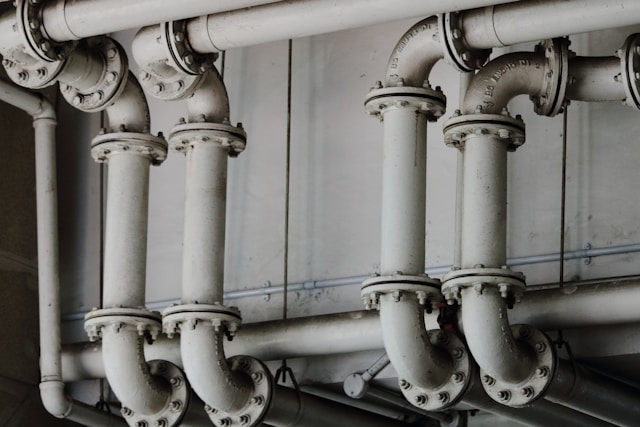Plumbing problems may cause trouble and expensive repairs, therefore upsetting everyday life. Maintaining the operation of your house or company depends on preventing issues before they start. Being proactive can help you to save stress, money, and time. This guide will assist you in keeping a good plumbing system and preventing typical problems.
Inspect for Leaks Regularly
Common sources of water damage include leaks, which, if dealt with, may be expensive. Under sinks, routinely inspect faucets, showerheads, and obvious lines for leaks. Over time, even a small drop may cause more major problems like mold development and water damage. For extra protection, pay particular attention to less visible spots, such as behind appliances or beneath cabinets, and think about hiring regular expert inspections.
Early little leak repairs may save a lot of long-term expenses and trouble. In addition to regular inspections for leaks, regular backflow testing services guarantee that your plumbing system is safe and free from contamination, therefore ensuring a clean and effective water flow.
Be Aware of What Ends Up Downstream
Often, the source of clogs is what you let down the drains. In kitchens, steer clear of dumping cooking oils or grease down the sink as they will harden and accumulate over time and finally clog the pipe.
Instead pour grease into a container, let it cool, then toss it in the trash. Use mesh strainers in sinks and showers to keep hair, soap scum, and other trash out of bathroom drains. One of the easiest methods to keep pipes free and running is to teach staff workers and housekeepers what should and shouldn’t go down drains.
Maintain Water Pressure at a Safe Level
Too much water pressure could strain pipes and cause leaks or even pipe bursts. Invest in a cheap, readily accessible pressure gauge from hardware shops and routinely check the water pressure in your house or company.
Usually, the recommended range runs from 40 to 60 psi. Should your water pressure regularly surpass this level, you should think about adding a pressure-reducing valve. In addition to lowering monthly utility costs and increasing water efficiency, this lessens the possibility of pipe damage.
Insulate Pipes in Cold Weather
Frozen pipes are a major hazard in colder months, especially in places where temperatures drastically decrease. To guard basements, attics, and crawl spaces from freezing, insulate exposed pipes there.
Affordable, simple to install, foam pipe insulation may assist pipes not freezing and breaking when the temperature drops. Keep a slow drip of water running in at-risk faucets during severe cold to keep water flowing, therefore preventing freezing. Often, all it takes to prevent a pricey burst pipe repair is a little dribble.
Flush Drains with Hot Water
Frequent hot water flushing of drains helps avoid the accumulation of oil, soap, and other trash, causing jams. For kitchen sinks particularly this is very beneficial. Maintaining a clean plumbing system may be much aided by just pouring hot water down the drain for a few minutes per week.
To further eliminate odors and naturally remove small obstructions, think about a monthly baking soda and vinegar rinse.
Find the central shut-off valve location
Knowing where the main shut-off valve is situated will help you to promptly halt water flow and avoid floods in case of a significant leak or broken pipe. Many houses have their shut-off valve outdoors near the water meter, in a basement, or garage.
Find its location and ensure everyone in your family or staff is aware of it. Test the valve often to make sure it’s working, then think about marking it for simple identification in an emergency.
Schedule Regular Professional Inspections
Although do-it-yourself maintenance is very important, professional knowledge is vital. Regular inspections arranged with a skilled plumber may help identify any problems invisible to the untrained eye.
Professionals may check the general state of your plumbing system, measure water pressure, and look for concealed leaks. Though they seem like an extra expenditure, yearly or bi-annual checks are a wise investment to avoid later expensive repairs.
Conclusion
Preserving a good plumbing system mostly depends on awareness and avoidance. Following these easy guidelines can help you avoid typical plumbing issues, save unplanned repair expenses, and keep your house or business operating as it should. Recall that a little preventive maintenance goes a lot toward preventing disruptive and expensive plumbing problems.



